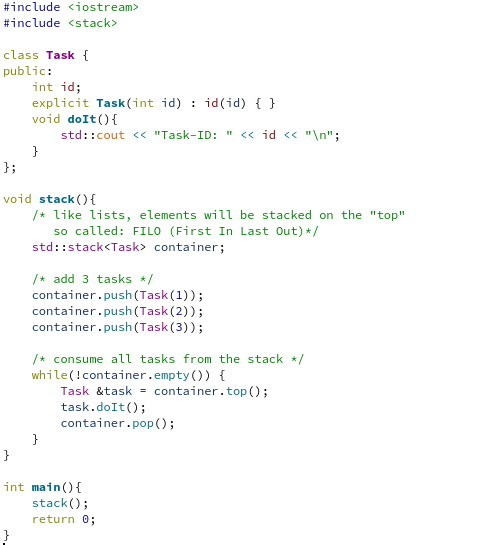Datenstrukturen in c++: Stack
Ein Stapelspeicher (Stack) folgt dem Prinzip First-In-Last-Out, also das erste Element was eingefügt wird, wird als letzes wieder entfernt. In diesem Beispiel versuche ich die Funktionsweise eines Stacks mithilfe eines Tasks zu erläutern.
Für mehr Theorie zu Stacks: https://peakd.com/hive-196387/@ozelot47/datenstrukturen-stack-stapelspeicher

#include <iostream>
#include <stack>
class Task {
public:
int id;
explicit Task(int id) : id(id) { }
void doIt(){
std::cout << "Task-ID: " << id << "\n";
}
};
void stack(){
/* like lists, elements will be stacked on the "top"
so called: FILO (First In Last Out)*/
std::stack<Task> container;
/* add 3 tasks */
container.push(Task(1));
container.push(Task(2));
container.push(Task(3));
/* consume all tasks from the stack */
while(!container.empty()) {
Task &task = container.top();
task.doIt();
container.pop();
}
}
int main(){
stack();
return 0;
}
0
0
0.000
Vielen Dank für deinen Einsatz :)
Solche Fachartikel braucht die Blockchain
Vielen Dank fürs lesen :)